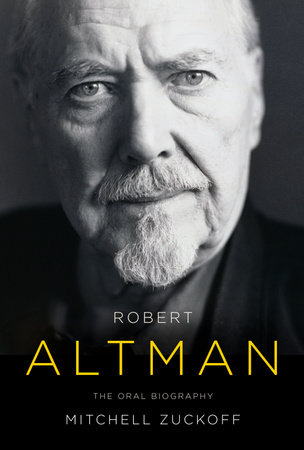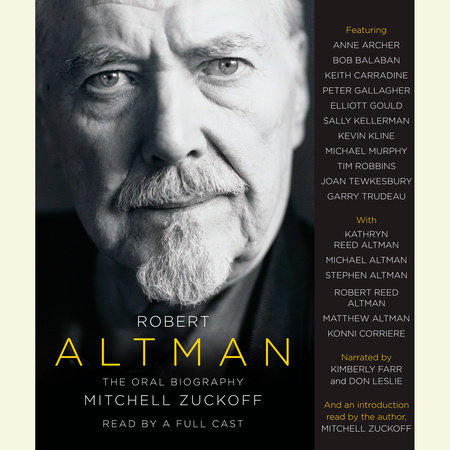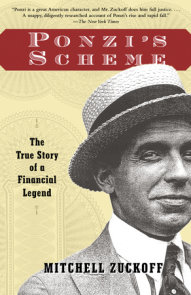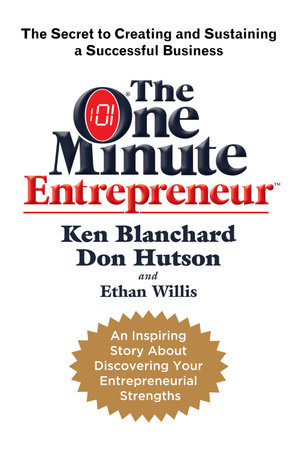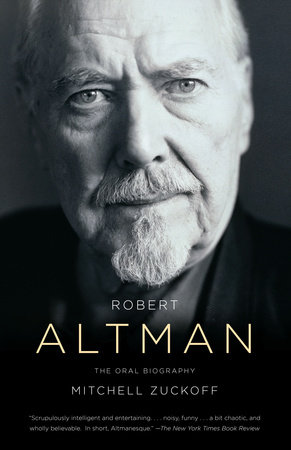

Robert Altman
By Mitchell Zuckoff
By Mitchell Zuckoff
By Mitchell Zuckoff
By Mitchell Zuckoff
By Mitchell Zuckoff
Read by Various
By Mitchell Zuckoff
Read by Various
By Mitchell Zuckoff
Read by Various
By Mitchell Zuckoff
Read by Various
Category: Movies & TV | Performing Arts | Arts & Entertainment Biographies & Memoirs | 20th Century U.S. History
Category: Movies & TV | Performing Arts | Arts & Entertainment Biographies & Memoirs | 20th Century U.S. History
Category: Movies & TV | Performing Arts | Arts & Entertainment Biographies & Memoirs | 20th Century U.S. History | Audiobooks
Category: Movies & TV | Performing Arts | Arts & Entertainment Biographies & Memoirs | 20th Century U.S. History | Audiobooks

-
$24.00
Dec 07, 2010 | ISBN 9780307387912
-
Oct 20, 2009 | ISBN 9780307273352
-
Oct 20, 2009 | ISBN 9781415966495
1086 Minutes
-
Oct 20, 2009 | ISBN 9780307576620
385 Minutes
Buy the Audiobook Download:
YOU MAY ALSO LIKE

Adrenal Transformation Protocol
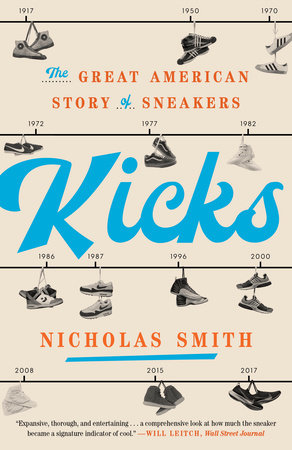
Kicks
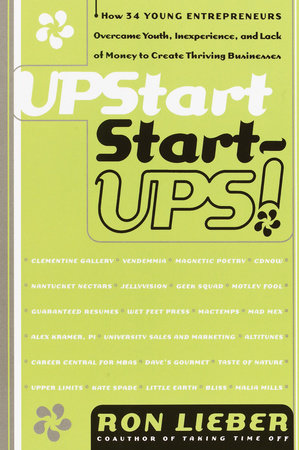
Upstart Start-Ups!
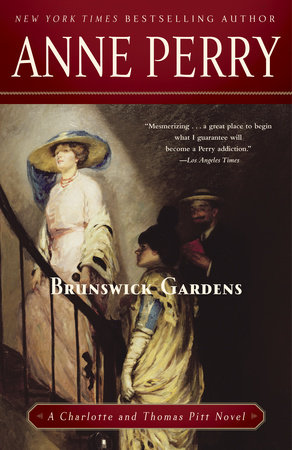
Brunswick Gardens
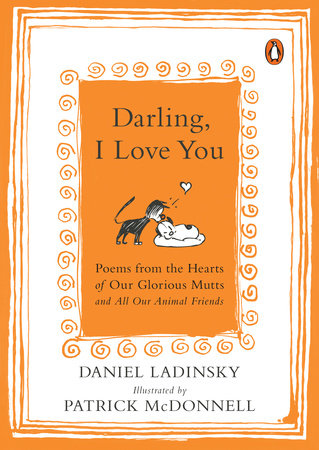
Darling, I Love You

National Audubon Society Field Guide to Reptiles and Amphibians
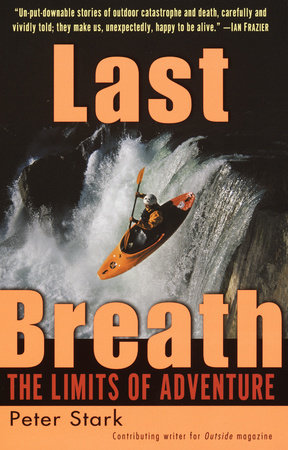
Last Breath
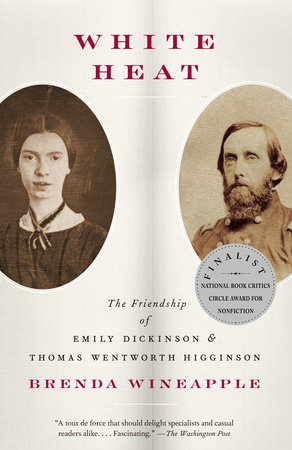
White Heat
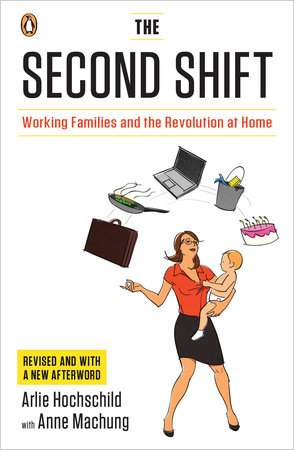
The Second Shift
Praise
“Scrupulously intelligent and entertaining. . . . Noisy, funny, slightly ill considered, a bit chaotic, and wholly believeable. In short, Altmanesque.” —The New York Times Book Review
“[Zuckoff] uses a light editorial hand, allowing a wide range of contributors to have their say. . . . A comprehensive, 360-degree look at a complicated subject.” —Wall Street Journal
“[There are] many surprising and revealing comments that Zuckoff has assembled in his fittingly rambling book. . . . Life is complicated, often messy—as Altman showed us—and his life, as seen in Zuckoff’s book, was no exception.” —San Francisco Chronicle
“A brilliantly researched, near-cinematic evocation. . . . Altman never gave up creating his cinematic portraits of people on the margins—con artists, prostitutes, gamblers, theives, clowns, movie executives—if only to shed light on the falsity behind his country’s seemingly indefatigable, desperate pursuit of success.” —The New Yorker
“[Zuckoff] doesn’t try to resolve the many contradictions surrounding Altman’s life and work, but lets them stand awkwardly beside one another for the reader to sort out. . . . As a form, the oral biography is well suited to a director who loved the sound of noisy conversation.” —The New York Review of Books
“Splendidly well-assembled. . . . Altman made amazing films, which Zuckoff’s far-reaching interviews illuminate, and by all the included accounts, he led an amazing life.” —The Morning News
“Like Altman’s signature soundtracks, this babel of transcripts offers a panoramic portrait.” —Chicago Sun-Times
“[A] marvelous, epic, tapestry-like life-scape of Robert Altman. . . . Witness by witness, Zuckoff constructs an exemplary and cautionary American life, and with the funny, tragic, and compelling tales they tell, he has made something like a print version of the Last Great Robert Altman movie.” —Directors Guild Quarterly
“A positively ‘Altmanesque’ treatment. . . . [Altman] made a great Western, a great anti-war movie, a great period piece, a great detective picture, a great ballet movie and the how-Hollywood-works movie. And Zuckoff . . . is an apt choice to corner an old fast-talker like Altman. Put this oral biography on your book list.” —Orlando Sentinel
“A fun read, more like a cocktail-party remembrance than a scholarly study. . . . Recollections of movies that strike a chord are so entertaining you’ll think about adding them to your Netflix queue to see them again.” —Milwaukee Journal Sentinel
“Zuckoff’s biography is like his subject’s movies, filled with a multiplicity of voices and averse to defining ‘meaning.’ Yet in the end, readers understand Altman’s stubborn vision, his refusal to compromise with commerce, and his hard-earned, eccentric genius.” —The Boston Globe
“I just now put [Robert Altman] down feeling heartbroken but happily and deeply inspired. . . . Wonderful.” —Wes Anderson
Table Of Contents
Act I: 1925–1969
1. Kansas City
2. Into the River
3. 307th Bomb Group
4. Making Pictures
5. The Calvin Company
6. The Delinquents
7. California
8. Kathryn
9. Cheese
10. No Milk
11. Countdown
Act II: 1970–1980
12. M*A*S*H
13. After M*A*S*H
14. McCabe
15. Fatherhood I
16. Mirrors
17. Split, California
18. Nashville
19. Diamond Cutter
20. Active Verbs
21. Scotty
22. Popeye
Act III: 1981–2006
23. The Wilderness
24. “I Made This”
25. The Player
26. Short Cuts
27. Heart in a Cooler
28. Mr. A and the Women
29. Home Stretch
30. Fatherhood II
31. Boots On
32. Not a Tragedy
A Note on Methods
Cast of Characters
Filmography
Awards and Honors
Acknowledgments
List of Illustrations
Index
Cast of Characters
The following are brief, Altman-centric biographies of people whose interviews are included in this book. Not included are journalists, reviewers, authors, and others whose writings and comments are excerpted throughout.
Jane Adams is an actress who played Junior League do-gooder Nettie Bolt in Kansas City and director Emily Shapiro in Robert Altman’s stage production of Arthur Miller’s Resurrection Blues.
Lou Adler is a legendary music producer who coproduced the 1967 Monterey International Pop Music Festival. The documentary of the event led him into the film business and to his role as producer of Brewster McCloud.
Anouk Aimée is an award-winning French film actress who became an international star from her role in A Man and a Woman, directed by Claude Lelouch. She played the character Simone Lowenthal in Prêt-à-Porter.
Christine Altman is Robert Altman’s eldest child. Her mother is the late LaVonne Elmer, Robert Altman’s first wife, to whom he was married from 1946 to 1949.
John Altman is a first cousin of Robert Altman. His father, Frank Altman, was the brother of Robert Altman’s father, Bernard “B.C.” Altman. He is a filmmaker in Kansas City.
Kathryn Reed Altman is the third wife and widow of Robert Altman. They met in 1959 when he was directing an episode of the television series Whirlybirds, and were married soon after. She is the mother of two of his sons, Robert Reed Altman and Matthew Altman, and his stepdaughter, Konni Corriere.
Matthew Altman is the fourth son of Robert Altman. He was adopted as an infant. He worked on several of his father’s movies as a crew member or in the art department as a set dresser, and appeared uncredited in Thieves Like Us, as “boy getting free soda.”
Michael Altman is the eldest son of Robert Altman. His mother is Lotus Corelli Altman Monroe. At fourteen, he wrote the lyrics to the theme song from M*A*S*H, “Suicide Is Painless.” He is a film projectionist in Los Angeles.
Robert Altman was born in Kansas City on February 20, 1925, and died in Los Angeles on November 20, 2006. His motto was “Giggle and give in.”
Robert Reed Altman is the third son of Robert Altman. He began working with his father on Nashville, worked on a half dozen of his father’s movies as a camera operator, and was director of photography on Tanner on Tanner. He has also been a camera operator on television series including Lost, The O.C., The Wonder Years, and Chuck.
Stephen Altman is the second son of Robert Altman. His mother is Lotus Corelli Altman Monroe. He was the production designer on more than a dozen of his father’s movies and television projects, including The Player, Short Cuts, and Gosford Park, and worked on a dozen others in the art or editorial departments.
Paul Thomas Anderson credits the films of Robert Altman with helping him to learn to be a director. Anderson served as the standby director for insurance purposes on Altman’s last film, A Prairie Home Companion.
Anne Archer appeared in Short Cuts as Claire Kane, a woman horrified to learn that her husband left a young woman’s body in a river while he fished with his buddies.
Wren Arthur worked as an assistant to Robert Altman in the late 1990s and rose to the position of producer on Tanner on Tanner and A Prairie Home Companion. She acted in Dr. T & the Women as a member of the doctor’s staff.
Josh Astrachan was associate producer of Dr. T & the Women, coproducer of Gosford Park, and a producer of The Company and A Prairie Home Companion.
René Auberjonois appeared as sweet-natured Father “Dago Red” Mulcahy in M*A*S*H, the man-turning-into-a-bird character called the Lecturer in Brewster McCloud, the bar owner/busybody Sheehan in McCabe & Mrs. Miller, the unfaithful husband Hugh in Images, and as himself in The Player.
Lauren Bacall played presidential candidate Esther Brill in HealtH and fashion doyenne Slim Chrysler in Prêt-à-Porter. The name Slim was a nod to her role as Marie “Slim” Browning opposite Humphrey Bogart in the 1944 Howard Hawks film To Have and Have Not.
Reza Badiyi was Robert Altman’s intern and protégé at the Calvin Company and rose to a career as a television director on dozens of shows, including Mission: Impossible, Hawaii Five-O, Cagney & Lacey, Falcon Crest, and Baywatch.
Richard Bakalyan is a veteran character actor who played gang leader Eddy in The Delinquents.
Bob Balaban is an actor, writer, producer, and director. He produced Gosford Park and played the role of the American film producer Morris Weissman.
Frank W. Barhydt met Robert Altman as a boy when Altman was working for Barhydt’s father at the Calvin Company. Barhydt cowrote the screenplays for Quintet, HealtH, Short Cuts, and Kansas City, and had acting roles in Tanner ’88 and The Player.
Sue Barton was the publicist on Nashville and appears as herself in the scene where Elliott Gould drops by.
Richard Baskin was music supervisor on Nashville and played the role of the studio musician Frog. He was nominated for a Grammy Award for Best Original Score. He was also a composer for Buffalo Bill and the Indians, or Sitting Bull’s History Lesson.
Warren Beatty had already been nominated for two Academy Awards, for Best Actor in a Leading Role and Best Picture, as producer, for Bonnie and Clyde, when he played doomed entrepreneur John McCabe in McCabe & Mrs. Miller.
Harry Belafonte played himself in The Player, Prêt-à-Porter, and Tanner on Tanner, and the gangster Seldom Seen in Kansas City, for which he won a New York Film Critics Circle Award. He and Robert Altman worked for years on an unfinished project on blackface, tentatively called Cork. When asked by Vanity Fair magazine to name the living person he most admired, Altman said, “Harry Belafonte.”
Robert Benton is a writer and director whose 1977 film The Late Show, starring Lily Tomlin and Art Carney, was produced by Robert Altman at Lion’s Gate Films.
Robert Blees produced the infamous Bus Stop episode directed by Robert Altman and starring Fabian, and also produced episodes of Combat! directed by Altman.
Jim Bouton was a pitcher for the New York Yankees who made an indelible mark on baseball with his book Ball Four. He played Terry Lennox in The Long Goodbye.
Kenneth Branagh starred as hotshot lawyer Rick Magruder in The Gingerbread Man.
Denise Breton met Robert Altman when she was the European publicist for M*A*S*H. She remained his European publicist, as well as being a friend and supporter, for the rest of his life.
David Brown was an executive at Twentieth Century Fox during the making of M*A*S*H, after which he formed a production company with Richard Zanuck. After that partnership disbanded, he was a producer on The Player.
Carol Burnett played mother-of-the-bride Katherine “Tulip” Brenner in A Wedding, presidential adviser Gloria Burbank in HealtH, and schoolteacher Alberta Johnson in the television production The Laundromat.
Bill Bushnell was the first managing director of the American Conservatory Theatre in San Francisco, where Robert Altman found several actors for M*A*S*H. Bushnell introduced Robert Altman to the play Secret Honor, and also to his wife, Scotty Bushnell, who subsequently became Bushnell’s ex-wife and Altman’s longtime producer.
James Caan starred as the lunar astronaut Lee Stegler in Countdown.
Neve Campbell produced and starred in The Company, playing the poised for-greatness ballet dancer Loretta “Ry” Ryan.
Keith Carradine played the naïve, doomed Cowboy in McCabe & Mrs. Miller; starred as the naïve, doomed bank robber Bowie in Thieves Like Us; and played a conflicted lothario, pop star Tom Frank, in Nashville. His song “I’m Easy” won an Academy Award for Best Original Song.
Geraldine Chaplin played the impostor BBC correspondent Opal in Nashville; sharpshooter Annie Oakley in Buffalo Bill and the Indians, or Sitting Bull’s History Lesson; and wedding-planner-with-a-secret Rita Billingsley in A Wedding.
Cher played sharp-tongued waitress Sissy in Come Back to the Five and Dime, Jimmy Dean, Jimmy Dean. She played herself in The Player and Prêt-à-Porter.
Julie Christie starred as the canny whorehouse madam Constance Miller in McCabe & Mrs. Miller, for which she was nominated for an Academy Award for Best Actress. She appeared as herself in a cameo in Nashville.
Graeme Clifford was assistant director on That Cold Day in the Park, casting director on McCabe & Mrs. Miller, an assistant on M*A*S*H, and editor of Images. He later became a director in his own right, with credits including Frances.
Leonard Cohen wrote “The Stranger Song,” “Sisters of Mercy,” and “Winter Lady,” which together created the haunting score for McCabe & Mrs. Miller.
Sam Cohn was Robert Altman’s agent off and on for large portions of his career.
John Considine played Annie Oakley’s husband, Frank Butler, in Buffalo Bill and the Indians, or Sitting Bull’s History Lesson. He cowrote the screenplay and played security chief Jeff Kuykendall in A Wedding, and appeared in episodes of Combat!, Tanner ’88, and Gun directed by Robert Altman.
Konni Corriere is the daughter of Kathryn Reed Altman and the stepdaughter of Robert Altman. She was his assistant on Prêt-à-Porter.
Bud Cort played timid Private Lorenzo Boone in M*A*S*H, then starred as the boy-who-would-fly title character in Brewster McCloud.
Norman Corwin has been called “America’s Poet Laureate of Radio.” His program On a Note of Triumph, broadcast upon the surrender of Nazi Germany, is considered his masterpiece.
Susan Davis was Robert Altman’s cousin by marriage (his aunt married her uncle) and an actress who appeared in his Calvin Company films and early television work.
Dale Dennison was the pilot on the B-24 Liberator bomber on which Robert Altman was copilot during World War II.
Paul Dooley played pompous father of the bride Liam “Snooks” Brenner in A Wedding, unlikely suitor Alex Theodopoulos in A Perfect Couple, burger fiend Wimpy in Popeye, “little guy” candidate Gil Gainey in HealtH—for which he also cowrote the screenplay—and torture target Randall Schwab in O.C. and Stiggs.
Robert Dornhelm is an Austrian director who was nominated for an Oscar for his documentary The Children of Theatre Street, and a longtime friend of Robert and Kathryn Altman’s.
David Dortort was the creator and producer of one of television’s most successful series, Bonanza.
Faye Dunaway knew Robert Altman but never worked with him.
Robert Duvall played astronaut Chiz in Countdown, the supercilious Major Frank Burns in M*A*S*H, and the psychotic Dixon Doss in The Gingerbread Man.
Shelley Duvall was “discovered” by Robert Altman during the casting of Brewster McCloud, in which she played Brewster’s down-to-earth girlfriend, Suzanne Davis. She then played reluctant prostitute Ida Coyle in McCabe & Mrs. Miller; innocent gun moll Keechie in Thieves Like Us; boy-crazy Marthe (aka L.A. Joan) in Nashville; Grover Cleveland’s wife in Buffalo Bill and the Indians, or Sitting Bull’s History Lesson; self-deluding Millie Lammoreaux in 3 Women (for which she shared Best Actress honors at the Cannes Film Festival); and Olive Oyl in Popeye.
Robert Evans produced Popeye after making a name for himself as the quintessentially “new Hollywood” head of production at Paramount Pictures.
Donald Factor is an heir to the Max Factor cosmetics fortune and was the producer of That Cold Day in the Park.
Jules Feiffer is a Pulitzer Prize–winning cartoonist, as well as an author, playwright, and screenwriter. He wrote the screenplay for Popeye.
Julian Fellowes is an actor and writer who wrote the screenplay for Gosford Park, which won an Academy Award for Best Original Screenplay, among other honors.
Corey Fischer played Captain Bandini in M*A*S*H, Officer Hines in Brewster McCloud, and the mad Reverend Elliot in McCabe & Mrs. Miller.
Fabian Forte was a teen pop idol in the 1950s who starred in an infamous episode of Bus Stop called “A Lion Walks Among Us,” directed by Robert Altman.
David Foster produced McCabe & Mrs. Miller, which launched his Hollywood career. Later films included The Getaway, The Drowning Pool, The Mean Season, and The Mask of Zorro.
Gillian Freeman is an author who wrote the screenplay for That Cold Day in the Park. An idea given her by Robert Altman became her novel Easter Egg Hunt.
Harvey and SuEllen Fried were friends of Robert Altman’s from Kansas City. SuEllen Fried acted in Altman’s productions at the Jewish Community Center of Kansas City and also had a role in The Delinquents.
Peter Gallagher played prosecutor Lieutenant Commander John Challee in The Caine Mutiny Court-Martial, sleazy studio executive Larry Levy in The Player, and chain-saw wielding ex-husband Stormy Weathers in Short Cuts.
Tess Gallagher is a poet and the widow of Raymond Carver, whose short stories were the basis for Short Cuts.
George W. George was a film and theater producer and writer who helped to launch the career of Robert Altman. His later work included his production of My Dinner with Andre.
Henry Gibson played mean Dr. Verringer in The Long Goodbye, self-important country music king Haven Hamilton in Nashville, favored son-in-law Fred Bott in A Perfect Couple, and dirty trickster Bobby Hammer in HealtH.
Jeff Goldblum played magazine editor Lloyd Harris in California Split; the mysterious, magical Tricycle Man in Nashville; the neurotic bisexual Bruce in Beyond Therapy; and himself in The Player.
Dr. Martin Goldfarb is a Los Angeles cardiologist who befriended Robert Altman at a poker game when they were young men and allowed him to live in his home for two years.
Art Goodell was a cameraman who worked with Robert Altman making industrial films at the Calvin Company in Kansas City in the 1950s.
Elliott Gould played the irreverent surgeon Captain Trapper John McIntyre in M*A*S*H, the out-of-time Philip Marlowe in The Long Goodbye, incorrigible gambler Charlie Waters in California Split, and himself in Nashville and The Player.
Dona Granata designed the costumes for Kansas City, The Gingerbread Man, Cookie’s Fortune, Dr. T & the Women, and the opera adaptation of A Wedding.
Danford Greene edited Nightmare in Chicago, That Cold Day in the Park, and M*A*S*H, for which he was nominated for an Academy Award for Best Film Editing.
Scott Griffin produced Resurrection Blues when it was directed by Robert Altman at the Old Vic in London.
Philip Baker Hall played a paranoid, confessional Richard Nixon in Secret Honor.
Robert Harders directed Philip Baker Hall in the original one-man play of Secret Honor and served as associate director on the film.
Buck Henry played a comic version of himself pitching The Graduate, Part II in The Player and the committed fisherman Gordon Johnson in Short Cuts.
Barbara Altman Hodes is the younger of Robert Altman’s two sisters.
John Horoschak, Jr. was a gunner on the B-24 Liberator bomber on which Robert Altman was copilot during World War II.
Lauren Hutton played filmmaker Florence Farmer in A Wedding.
Mike Kaplan was the publicist for 3 Women and other Lion’s Gate Films releases. He played the Treasurer/Jules Keen in Buffalo Bill and the Indians, or Sitting Bull’s History Lesson, and studio executive Marty Grossman in The Player. He was associate producer of Short Cuts and produced a film based on its making, called Luck, Trust & Ketchup: Robert Altman in Carver Country.
Elliott Kastner is a combative independent producer who produced The Long Goodbye. Among his other films are Where Eagles Dare and The Missouri Breaks.
Elaine Kaufman is the eponymous owner of Robert Altman’s favorite restaurant in New York.
Garrison Keillor played announcer/raconteur GK and wrote the screenplay for A Prairie Home Companion, a fictional account of the last night of his long-running radio show.
Sally Kellerman played Major Margaret “Hot Lips” Houlihan in M*A*S*H, for which she was nominated for an Academy Award for Best Supporting Actress. She played bird woman/guardian angel Louise in Brewster McCloud, fashion editor Sissy Wanamaker in Prêt-à-Porter, and herself in The Player. She also appeared in an episode of the television series Gun directed by Robert Altman.
Kevin Kline played clueless security man Guy Noir in A Prairie Home Companion.
Wolf Kroeger was art director on Quintet and set designer on Popeye and Streamers. He was an associate producer on HealtH.
Alan Ladd, Jr., is an independent producer who was president of Twentieth Century Fox for most of the period when Robert Altman made five films in a row for the studio: 3Women, A Wedding, Quintet, A Perfect Couple, and HealtH.
Margaret Ladd played pot-smoking bridesmaid Ruby Sparr in A Wedding and kept a diary of her experiences on the set.
Tom Laughlin played college-bound Scotty White in The Delinquents more than a decade before being cast in his defining role, as the title character in Billy Jack.
Jennifer Jason Leigh played nonchalant phone-sex worker Lois Kaiser in Short Cuts and desperate kidnapper Blondie O’Hara in Kansas City. She is the daughter of Barbara Turner, who collaborated with Robert Altman as an actress and a screenwriter, and the late Vic Morrow, who worked with him on Combat!
David Levy worked with Robert Altman off and on for more than two decades after Altman hired Levy away from his job as an assistant to super-agent Sam Cohn, who represented Altman at the time. He was a crew member on HealtH and Popeye; associate producer on The Player, Short Cuts, and The Gingerbread Man; co producer on Cookie’s Fortune and Dr. T & the Women; and a producer of Gosford Park, The Company, and A Prairie Home Companion.
George Litto is sometimes called the unsung hero of M*A*S*H for having orchestrated the hiring of Robert Altman as its director. He was Altman’s agent for periods of the 1960s and ’70s, and when the money fell out became executive producer of Thieves Like Us.
Johnny Mandel composed the music for “Suicide Is Painless,” the theme song for M*A*S*H.
Loring Mandel wrote the screenplay for Countdown.
Norma Maring is alumni director emeritus at Wentworth Military Academy in Lexington, Missouri.
Malachy McCourt is a writer and raconteur who says he was the original choice to play Father Mulcahy in M*A*S*H.
Malcolm McDowell played himself in The Player and mercurial company director Alberto Antonelli in The Company.
Pam Dixon Mickelson was the casting director on Cookie’s Fortune, Dr. T & the Women, The Company, and A Prairie Home Companion, and helped with casting on Gosford Park.
Matthew Modine played the young soldier Billy in Streamers, cuckolded husband Dr. Ralph Wyman in Short Cuts, and huckster Skip Cheeseboro in Robert Altman’s production of Resurrection Blues by Arthur Miller, staged at the Old Vic in London in 2006.
Lotus Corelli Altman Monroe was Robert Altman’s second wife. They were married from 1952 to 1959. She is the mother of his sons Michael and Stephen.
Julianne Moore played the unhappily married artist Marian Wyman in Short Cuts and the simple-like-a-fox Cora Duvall in Cookie’s Fortune.
Michael Murphy started working with Robert Altman as an unnamed soldier in Combat! He played skeptical civilian Rick in Countdown, the woman procuring character called the Rounder in That Cold Day in the Park, whorehouse doctor Captain Ezekiel “Me Lay” Marston IV in M*A*S*H, suicidal supercop Frank Shaft in Brewster McCloud, corporate toady Eugene Sears in McCabe & Mrs. Miller, political operative John Triplette in Nashville, Captain Blakely in The Caine Mutiny Court-Martial, presidential candidate Jack Tanner in Tanner ’88 and Tanner on Tanner, and power broker Henry Stilton in Kansas City.
Patricia Neal played Jewel Mae “Cookie” Orcutt in Cookie’s Fortune. She was the ex-wife of the late Roald Dahl.
Paul Newman played proto-celebrity William F. “Buffalo Bill” Cody in Buffalo Bill and the Indians, or Sitting Bull’s History Lesson, and the optimistic Essex in Quintet.
Peter Newman was a production executive on Come Back to the Five and Dime, Jimmy Dean, Jimmy Dean, and was a producer of O.C. and Stiggs.
Allan Nicholls played cuckolded third wheel Bill in Nashville; the journalist Prentiss Ingraham in Buffalo Bill and the Indians, or Sitting Bull’s History Lesson; security man Jake Jacobs in both A Wedding, for which he cowrote the screenplay, and HealtH; Dana 115 in A Perfect Couple, for which he also wrote the music and cowrote the screenplay; and Rough House in Popeye. He was music supervisor on HealtH, O.C. and Stiggs, and Prêt-à-Porter. He was an assistant director on Streamers, Secret Honor, The Laundromat, The Caine Mutiny Court-Martial, The Player, Short Cuts, and Tanner on Tanner, and associate producer on Quintet.
David Picker ran United Artists when Robert Altman made The Long Goodbye.
Johnnie Planco was Robert Altman’s longtime agent at William Morris.
Polly Platt was working as a production designer when she quit Nashville over her disagreement about the climactic assassination.
Anne Rapp wrote the screenplays for Cookie’s Fortune and Dr. T & the Women.
Tim Robbins played homicidal movie executive Griffin Mill in The Player, priapic motorcycle cop Gene Shepard in Short Cuts, and hotel room–bound journalist Joe Flynn in Prêt-à-Porter.
Bill Robinson worked for a time as Robert Altman’s agent and longer as his backgammon partner.
Annie Ross is a renowned jazz singer who played the widowed jazz singer Tess Trainer in Short Cuts.
Alan Rudolph was Robert Altman’s friend, protégé, and collaborator for more than three decades. He was an assistant director on The Long Goodbye, California Split, and Nashville. He cowrote Buffalo Bill and the Indians, or Sitting Bull’s History Lesson. He appeared as himself in the opening scene of The Player. Five films he directed were produced by Robert Altman: Welcome to L.A., Remember My Name, Mrs. Parker and the Vicious Circle, Afterglow, and Trixie.
Mark Rydell is a director and actor who played the psychotic, observant Jewish gangster Marty Augustine in The Long Goodbye.
Joan Altman Sarafian is the elder of Robert Altman’s two sisters.
Richard Sarafian is a director, writer, and actor who worked with Robert Altman making industrial films at the Calvin Company. His films include Vanishing Point and The Man Who Loved Cat Dancing. He was Altman’s brother-in-law during his marriage to Joan Altman Sarafian.
John Schuck played the sexually troubled dentist Captain Walter Kosciusko “Painless Pole” Waldowski in M*A*S*H, eager Officer Marty Johnson in Brewster McCloud, townsman Smalley in McCabe & Mrs. Miller, and brooding bank robber Elmo “Chicamaw” Mobley in Thieves Like Us.
Martin Scorsese was one of the few directors whose work Robert Altman publicly admired. He played himself in Tanner on Tanner and was instrumental in preserving a number of Altman films, including McCabe & Mrs. Miller.
George Segal played the conflicted gambler Bill Denny in California Split.
Matthew Seig was an associate producer of Tanner ’88, coproducer of Kansas City and Jazz ’34, and a producer of Tanner on Tanner. He continues to manage Robert Altman’s copyright and business affairs.
Jim Shepard teaches writing at Williams College. His books include Lights Out in the Reptile House, Project X, and Like You’d Understand, Anyway.
Sam Shepard is a Pulitzer Prize–winning playwright who wrote Fool for Love for the stage, adapted it for screen (though he says Robert Altman actually wrote most of the screenplay), and starred in the movie version as the tortured, incestuous cowboy Eddie.
Tom Skerritt appeared in small roles in Combat!, then played easygoing, if racist and sexist, Captain Augustus “Duke” Forrest in M*A*S*H, and accessory-after-the-fact Dee Mobley in Thieves Like Us.
Lois Smith is a renowned press agent who spent more than thirty-five years working with Robert Altman, even serving him beyond the grave by helping to organize memorials in New York and Los Angeles.
Roger Snowdall was a soundman who worked with Robert Altman making industrial films at the Calvin Company in Kansas City in the 1950s.
Frank South wrote the 2 by South plays, Precious Blood and Rattlesnake in a Cooler.
Sissy Spacek played blank slate/identity thief Pinky Rose in 3 Women.
Jerre Steenhof was one of Robert Altman’s high school girlfriends.
Stewart Stern wrote the screenplay for The James Dean Story, a role for which he was ideally suited, having been a close friend of Dean’s and having written the screenplay for Rebel Without a Cause.
Meryl Streep played singing sister (and mother to the character played by Lindsay Lohan) Yolanda Johnson in A Prairie Home Companion. News that she had agreed to a leading role in Robert Altman’s next planned film, to be called Hands on a Hard Body, made him nearly giddy in the weeks before his death.
William Stuckey was the nose-turret gunner on the B-24 Liberator bomber copiloted by Robert Altman in World War II.
Joan Tewkesbury wrote the screenplays for Thieves Like Us and Nashville, for which she was nominated for an Academy Award for Best Original Screenplay. She was a script supervisor on McCabe & Mrs. Miller, in which she also played a townswoman. She played “the lady in the train station” in Thieves Like Us.
Michael Tolkin’s screenplay for The Player, based on his novel of the same name, was nominated for an Academy Award for Best Adapted Screenplay.
Lily Tomlin played unsatisfied housewife Linnea Reese in Nashville, her first film role, for which she was nominated for an Academy Award for Best Supporting Actress. She played herself in the movie within a movie in The Player , waitress/accidental killer Doreen Piggot in Short Cuts, and singing sister Rhonda Johnson in A Prairie Home Companion.
Garry Trudeau, the creator of the “Doonesbury” comic strip, was the writer and a producer of the Tanner ’88 television series and the writer of Tanner on Tanner.
Barbara Turner played Hildegarde in Nightmare in Chicago and wrote the screenplay for The Company. She is the mother of Jennifer Jason Leigh.
Raymond Wagner is a producer who was a business partner of Robert Altman in the 1960s. He produced the film Petulia, adapted for the screen by Barbara Turner at Altman’s suggestion, when their partnership dissolved.
Jerry Walsh was related to Robert Altman by marriage (his uncle John married Altman’s aunt Pauline) and later became his friend, his lawyer, and the executor of his estate.
Joseph Walsh wrote the screenplay for California Split, based partly on his own exploits as a young man with his friend Elliott Gould, whose character is based on Walsh.
John Williams composed the theme music for Nightmare in Chicago, The Kathryn Reed Story, Images, and The Long Goodbye.
Robin Williams starred as Popeye in his first feature film.
Richard Zanuck was president of Twentieth Century Fox during the making of M*A*S*H.
Vilmos Zsigmond was the cinematographer on McCabe & Mrs. Miller, Images, and The Long Goodbye, for which he won a National Society of Film Critics Award for Best Cinematography.
21 Books You’ve Been Meaning to Read
Just for joining you’ll get personalized recommendations on your dashboard daily and features only for members.
Find Out More Join Now Sign In






